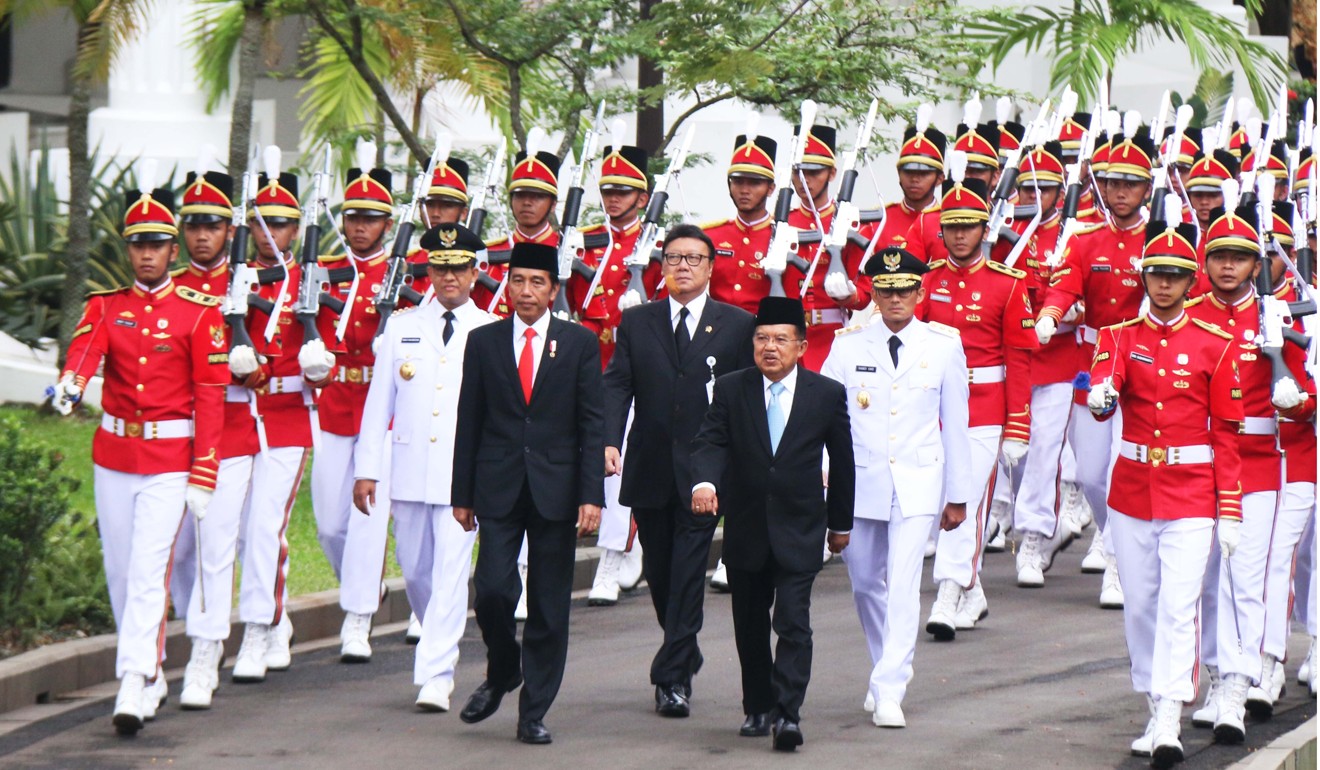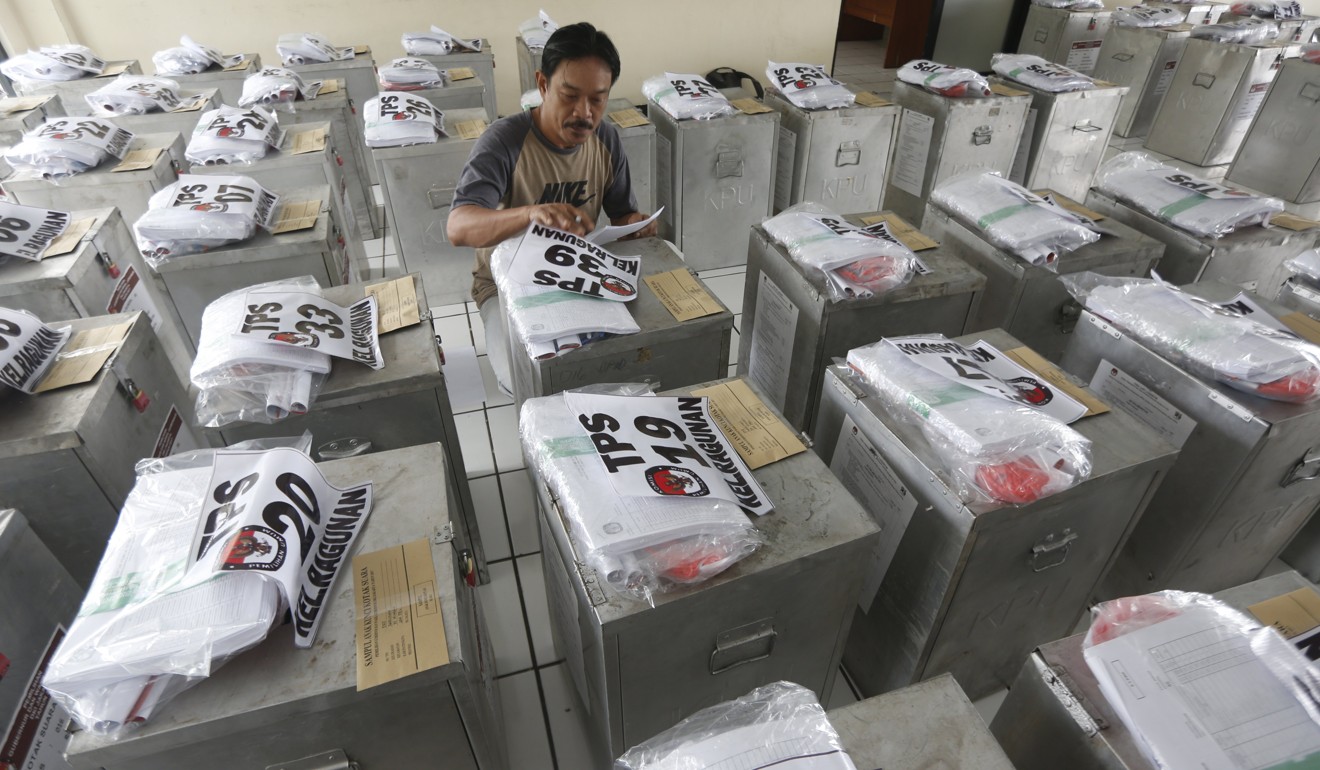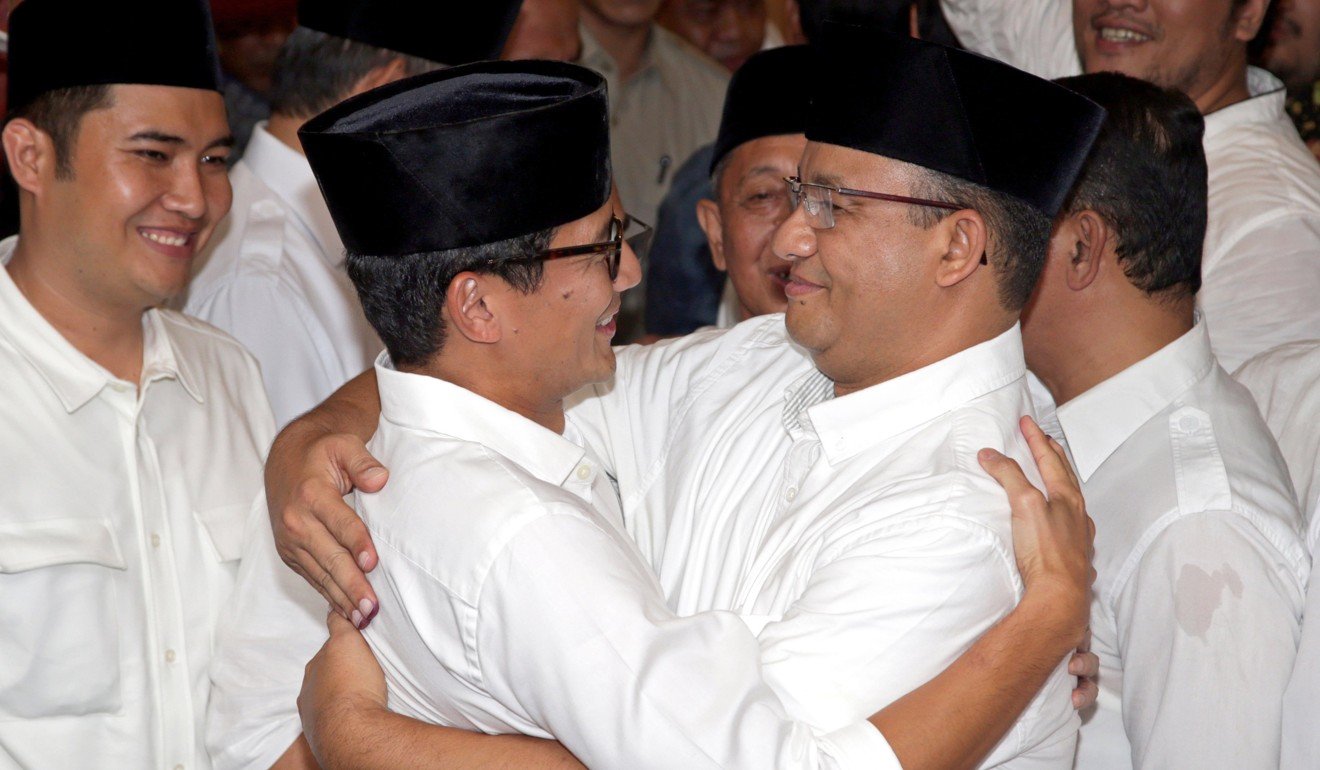
Could anti-Chinese violence flare again in Indonesia?
Jakarta’s new governor Anies Baswedan has called on the Muslim majority ‘pribumi’ to be ‘masters of an independent country’, raising fears of a return to the country’s dark past of sectarianism and interethnic strife
At the Orion Plaza in the North Jakarta suburb of Glodok, Along Jenggot solders a connector onto a satellite dish cable. He has worked here since before 1998, when rioters stormed the mall, looted its shops and set it ablaze. The ceiling fell in, Jenggot recalls. The walls are still charred in places.
Now the owner of a small electronics repair shop at the mall, Jenggot worries whether the same strife will erupt again. “It can happen,” the 50-year-old said. “They are using race and religion now. We know the capacity of the politicians now.”

“Anies has promised to respect minorities and be a governor for all residents of Jakarta. However, his attitude is often the opposite,” said Soe Tjen Marching, an ethnic Chinese activist and writer.
What if Ahok’s loss in the Jakarta election wasn’t all about Islam?
“He consciously or unconsciously emphasises division and discrimination. Although he promised to respect minorities, this seems like just lip service.”
Baswedan, a former academic and education minister in the cabinet of President Joko Widodo, owes his election to the support from hardline Muslim groups targeting the incumbent Basuki Tjahaja Purnama.
WATCH: Hardline Muslims protest against Jakarta governor
Better known as Ahok, Purnama ran afoul of Muslims when a doctored video circulated on social media that appeared to depict him insulting the Koran. He did not, but groups such as the Islamic Defenders Front (FPI) ran with it, in part because they objected to being governed by a non-Muslim.
“The most important thing for us is to have a Muslim governor,” said Sugito Atmo Pawiro, the FPI’s chief lawyer.
Late last year, the Islamic group and their allies mobilised hundreds of thousands onto the street in a successful effort to force police to charge Purnama with blasphemy. Purnama was jailed in May. “This was a very big struggle and God willing we prevailed,” said Sugito.
As Purnama’s case went to trial during the election campaign earlier this year, Baswedan, a moderate Muslim in step with the country’s secularist traditions, allied with the FPI, which supports the introduction of sharia law, in a bid to secure a big chunk of the Muslim vote. It worked and Baswedan, who had never held elected office before, swept to victory with nearly 60 per cent of the vote.

Jakarta’s ethnic Chinese leader is gone, is it Widodo next?
But it’s Baswedan’s implicit promises that have some analysts worried. Yenny Wahid, director of the think tank The Wahid Institute, said Baswedan, who does not have his own party to back him, will be under pressure to splash out on mosques, Muslim religious festivals as well as to appear at overtly religious events.
“There will be government funding for hardline causes,” said Wahid, who is the daughter of the former President Abdurrahman Wahid. “Once you give more space to them they will posture for more.”
Baswedan and his deputy, the private equity banker Sandiaga Uno, declined repeated requests for comment.

The about-face may be understandable given what was at stake. The governorship is widely viewed as a launch pad to the presidency. Widodo, a former mayor of Surakarta, generated a national profile after winning the office in 2012 by kick starting badly needed infrastructure projects and extending health and education services to the poor. Purnama became governor when Widodo won the presidency in 2014.

Ethnic Chinese were driven from their homes from angry mobs in Medan, Jakarta, and elsewhere after the fall of former dictator Suharto on rumours Chinese were hoarding rice and driving up the price. Hundreds of thousands of suspected leftists and ethnic Chinese were slaughtered after the abortive coup in 1965 that helped bring Suharto to power.
Will Islam swing nail-biter election for Jakarta’s governor?
“It could start a trend,” said Yuli Ismartono, a veteran local journalist and editor with Tempo, a publication banned for seven years under Suharto. “The question is will it work in the future? It’s very worrying.”
To be sure, the mass rallies of last year have not been repeated. The demonstrations aimed at deposing Purnama were largely peaceful. FPI’s Sugito has said his organisation will respect Jakarta’s diversity – to a point. “We appreciate diversity as a gift from God,” said Sugito. “But there must be no tyranny from a minority.” ■

